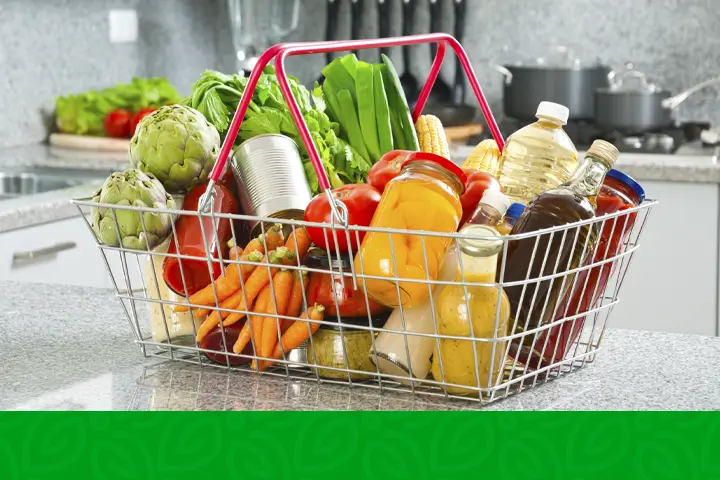
Breaking News: The Grocery Bill Surge Sweeping Namibia
Are you feeling the pinch in your wallet every time you step into the grocery store? Well, you’re not alone. In August, Namibians across the country found themselves shelling out more for vegetables as prices skyrocketed by a staggering 16.9%. This shocking revelation comes straight from the Namibia Consumer Price Index, as reported by the Namibia Statistics Agency (NSA).
Inflation Tug of War: The Numbers Don’t Lie
As we dig deeper into these figures, it’s evident that the inflation beast is rearing its head in the kitchen. The overall annual inflation rate for August 2023 was recorded at 4.7%, marking a significant drop from the 7.3% recorded in August 2022. Yet, the real battleground for consumers seems to be the food and non-alcoholic drinks category, which took the biggest hit, contributing substantially to the annual inflation rate for August 2023.
Namibia’s very own Statistician-General & CEO, Alex Shimuafeni, has the inside scoop, stating, “On average, vegetable prices increased by 16.9% in August 2023, compared to 7.2% recorded a year ago.” That’s right, folks, a nearly 17% spike in vegetable prices in just one month! But, which veggies were hit the hardest? Brace yourself; it’s not just one or two. The list includes cabbage, spinach, onions, beets, broccoli, and cauliflower.
And it’s not just vegetables taking a hit. In August 2023, the price of various fish varieties shot up by 16.2%, impacting fresh, chilled, and frozen fish, as well as dried, smoked, salted, and salted fish and seafood. It’s safe to say; your seafood dinners are becoming quite the luxury.
The Grocery List Nightmare Continues
While we’d all love to load our baskets with fresh produce and seafood, there’s more to this inflation story. Food goods, as a whole, experienced an annual inflation rate of 11.0% in August 2023, compared to a mere 6.3% in the same period last year. The culprits? Spices and condiments, ready-made frozen food, mayonnaise/mustard/salad dressings, and vinegar, which have all seen substantial price increases.
But it doesn’t end there. Bread and cereals, accounting for 4.8% of the consumer basket, followed by meat at 3.5%, sugar, jam, honey, syrups, chocolate, and confectionery at 1.4%, and vegetables, milk, cheese, and eggs each at 1.2%, are all contributing to this economic crunch.
According to the CPI report, food and non-alcoholic drinks recorded an annual inflation rate of 10.0% in August 2023, compared to 8.8% in the same month in 2022. And the story doesn’t stop at annual figures; the monthly inflation rate for this category clocked in at 0.3% in August 2023, compared to -0.2% in July. Meat prices also witnessed an 8.4% surge in August 2023, compared to 5.2% in the same month last year. If you’re a bacon lover, you’ll be disheartened to know that it recorded the highest jump, going from -1.1% to a whopping 23.2%. Pork and ham also followed suit, with increases from 1.9% to 23.5% and 3.4% to 23.8%, respectively.
The Soaring Costs of Comfort: Housing and Utilities
Now, let’s switch gears for a moment. Housing, water, electricity, gas, and other fuels, making up a substantial 28.4% of the consumer basket, weren’t left unscathed. This category saw an increase of 2.8% in August 2023. The surge in annual inflation was primarily driven by subgroups like electricity, gas, and other fuels, recording 6.7% compared to 3.9% in August 2022, and rental payments for housing, which registered 2.1% compared to 1.4% in August 2022.
The Final Verdict
As the numbers don’t lie, it’s clear that inflation is making its presence felt in our kitchens, grocery stores, and utility bills. The grocery bill surge is not just a statistic; it’s a real challenge for Namibian households.
So, what can you do to navigate these turbulent economic waters? Stay tuned for our next article, where we’ll share practical tips and insights to help you weather this storm of rising prices.
In the meantime, keep a close eye on your budget and consider exploring more budget-friendly alternatives to ensure your kitchen stays well-stocked without emptying your wallet.
Stay updated with the latest farming tips and agriculture industry news from Africa by subscribing to our newsletter. Don’t miss out on valuable insights and updates. Follow us on Twitter, LinkedIn, and Facebook to join our farming community and stay connected with us.



















